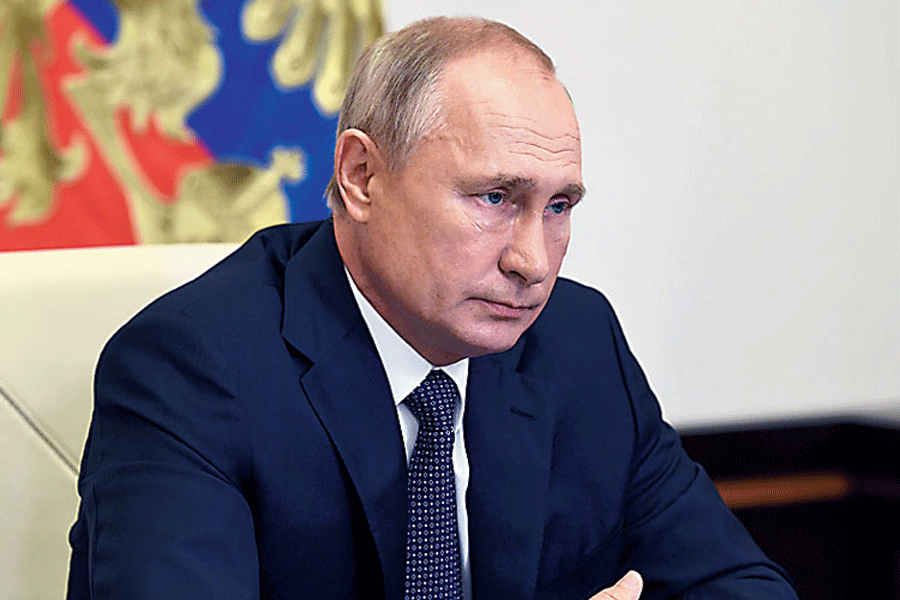President Vladimir Putin mobilised Russian troops on Saturday to put down what he called an armed rebellion by the mercenary leader Yevgeny V. Prigozhin, whose forces had claimed control of the southern Russian city of Rostov-on-Don and were seen moving north along a highway towards Moscow.
By the evening, the office of Belarusian President Alexander Lukashenko said he had brokered a deal with Prigozhin who had agreed to de-escalate the situation.
The announcement said Prigozhin (pronounced pree-GOH-shin) had agreed to halt the further movement of Wagner fighters across Russia.
In an audio statement, Prigozhin said he and his Wagner forces were “turning around our columns and returning to field camps according to plan”.
The statements offered the possibility that the rapidly evolving security crisis embroiling Putin's government could be resolved without armed fighting.
But Prigozhin did not say whether his forces were leaving the southern city of Rostov-on-Don, a Russian military hub he has seized. In the audio statement posted to Telegram, Prigozhin said his forces were within 200km of Moscow, and had reached that point without any bloodshed among his fighters.
The armoured convoys had travelled from Rostov, and governors of regions along Russia’s major M-4 highway to Moscow urged residents to stay away from the corridor. Videos showed signs of active fighting along the highway.
A Reuters journalist saw army helicopters open fire at an armed Wagner column that was advancing past the city of Voronezh with troop carriers and at least one tank on a flatbed truck. The city is more than halfway along the 1,100km highway from Rostov to Moscow.
In a brief address to the nation on Saturday morning, Putin called Prigozhin a traitor who had delivered “a stab in the back of our country and our people”.
Putin said that military and civilian functions had “essentially been blocked” in Rostov, an important military hub for Russia’s war in Ukraine, an implicit acknowledgement of some success by Prigozhin, an erstwhile Putin ally whose forces have fought alongside the Russian Army in Ukraine.
The confrontation marked the most dramatic threat to the Russian President’s power since he took over leadership in 1999, and came at a pivotal moment in Russia’s war in Ukraine, where Kyiv’s forces have begun a counteroffensive to take back territory.
Moscow declared a “counterterrorist operation regime”, giving the authorities expanded legal powers, even as pro-war Russian activists expressed alarm that the uprising could threaten Moscow’s front lines in Ukraine.
In a video that surfaced early Saturday, verified by The Times, Prigozhin is seen in the company of armed men in the courtyard of Russia’s southern military headquarters in Rostov. “We’re blockading the city of Rostov and going to Moscow,” Prigozhin says, demanding to see the chief of the General Staff of the Russian military and the Russian defence minister, Sergei K. Shoigu.
Russian authorities said they were charging Prigozhin with “organising an armed rebellion” against the Russian President. For months, Prigozhin has accused Russia’s top military leaders of incompetence for not adequately supplying his Wagner forces with ammunition as they fought alongside the Russian military in Ukraine.
The mercurial Wagner leader’s long-running criticism of Moscow’s military leadership erupted into open confrontation on Friday when he accused the Russian Army of attacking his forces and pledged to retaliate.
In an earlier audio message on Saturday, Prigozhin rejected the charge of treason and said that his forces were “patriots of our motherland”.
Kremlin apparatchiks, regional governors, lawmakers and other officials declared their fealty to Putin, with virtually all predicting that he would prevail. No central figures publicly took Prigozhin’s side.
Ramzan Kadyrov, the ruler of Chechnya, promised to commit his own private troops to putting down the insurgency, although he has a history of proclaiming a more active role than he actually carries out.
US officials said they were watching the situation closely but did not want to say anything publicly that could give Putin reason to blame the West for the turmoil.
Britain’s defence intelligence agency described the crisis as the “most significant challenge to the Russian state in recent times” and said that the loyalty of Russia’s security forces — especially the Russian National Guard — would be crucial.
In eastern Ukraine, residents saw the rebellion as a distraction for Russia that could help Kyiv’s forces. Russia continued its attacks on Ukraine, firing more than 20 missiles at Kyiv in a predawn assault that left at least three people dead, the eighth attack on the Ukrainian capital this month.
New York Times News Service










